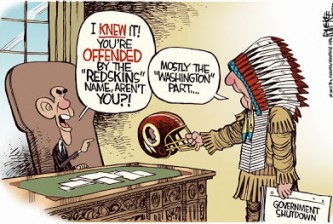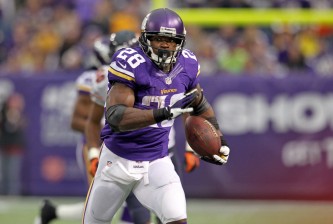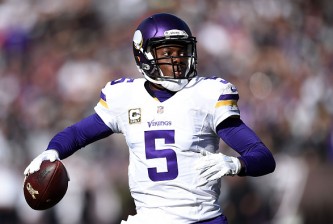
Late in the third quarter of Saturday's NFC wild-card game between the New Orleans Saints and Philadelphia Eagles, Saints cornerback Keenan Lewis laid a great hit on Eagles wide receiver Jason Avant, breaking up a pass from Nick Foles. It was a positive play from New Orleans' top cover man, and yet it almost cost the Saints the game.
Why?
Because Lewis was forced to sit out the remainder of the game due to the fact he was deemed by doctors to be suffering from concussion-like symptoms. And as we know, the NFL has essentially adopted a zero-tolerance policy in regard to letting players back into games once they've sustained anything resembling a concussion.
On the surface, it does feel like a good policy. The numbers indicate CTE is taking the lives of young current and former players and the league just paid nearly a billion dollars to settle thousands of lawsuits from former players who claimed they were lied to about the impact of traumatic head injuries. From a safety standpoint as well as a legal standpoint, it is probably important that those who are deemed to have concussions are kept off the field until they've passed baseline tests and have been cleared by an independent neurologist.
But here's the problem: Lewis wanted back in, badly. And again, without him, the Saints nearly lost. Philadelphia immediately started picking on his replacement, Corey White, and two 40-yard gains on passes in White's direction led to a go-ahead Eagles touchdown.
Lewis is also a grown man who has control over his own body and makes his own decisions.
Those former players sued because they felt they were tricked by the league. But now, everything the league knows about concussions is public knowledge. There should no longer be any legitimate legal risks involved here. If Lewis is silly enough to risk his long-term health by returning to the ball, on what grounds should we stop him? He knows the risk.
Earlier Saturday, the Chiefs lost Jamaal Charles for virtually their entire game with the Colts. Had they had Charles, who was one of the league's best running backs this season, they might have won a game which they lost by a single point. He didn't fight like Lewis to return, at least not on camera, but the reality is that, 10 years ago, he might have…and Lewis definitely would have.
"When I was playing football, he would be back in the game" said NBC's Cris Collinsworth during the Saints-Eagles broadcast. "The doctors now are taking a much stronger approach to this issue."
I think it's the right approach, but I am conflicted in moments like those. How much would it suck if the Saints had lost that game with Lewis wanting back in but in a virtual prison on the sideline? What if it were the Super Bowl? I know none of those things are as important as life and death, and I understand that the league feels it has a responsibility to protect emotionally-charged, near-sighted players from themselves, but when we're talking about fully-informed adults in tremendously crucial situations, it gets a little tricky.
Obviously, the policies in place will never become looser. In fact, they'll likely become tighter. We just have to hope that the rule changes in place keep decreasing concussion rates in general. And when concussions inevitably happen, we have to hope that they don't cause too many conflicts like the one we had in Philadelphia Saturday night.






















